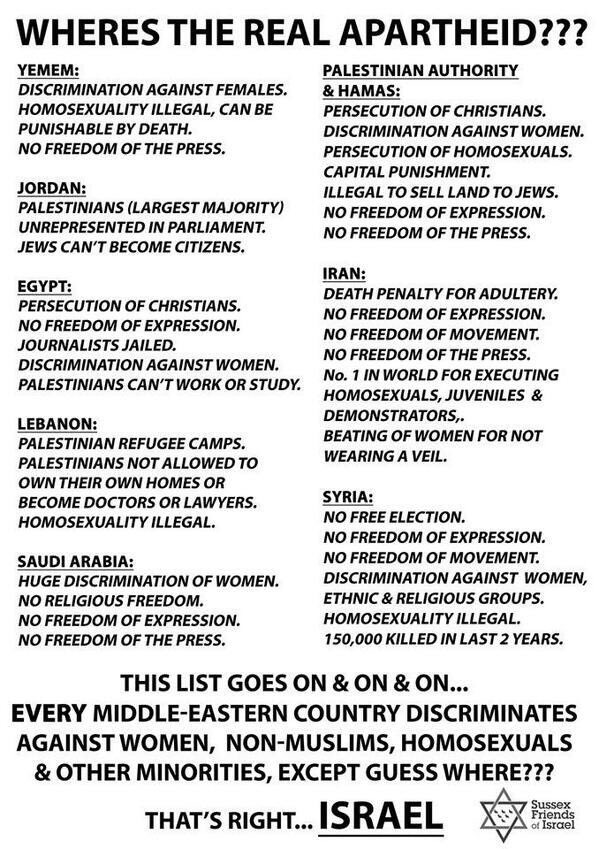David Collier: Bare faced lies, distortion and propaganda at the SOAS centenary talk
Last night 9/3/2017, I had an invite to two very different events. The first, an event at UCL hosted by the UCL Israel Society, with Mohammed Zoabi. The second, part of the SOAS centenary lecture series, with a talk by ‘renowned human rights lawyer’ Raja Shehadeh.A disgrace to human rights
As it was, I chose to see both, an upside to the new trend of live streaming. This a tale of two people. One looking beyond the hate, the other losing himself to it. I am left asking why SOAS chose to place such a moment of recognition on pure anti-Israel slander? Academia is now blind to truth, deaf to reason and actively assisting in spreading propaganda instead of academic research or messages of hope.
Zoabi at UCL
Mohammed Zoabi is a confident young man. Very easy with the audience, and spent most of his time interacting and taking questions. Even with the reflection and confusion that being an Arab inside Israel must bring, he handles these different identities well.
Nor is Zoabi an ‘Israeli apologist’ of any sort. He is clearly moderate, open to criticism and ideologically firmly grounded. It is wrong to suggest Zoabi is a Palestinian Blumenthal or Pappe. Zoabi is no self-hater, he is someone who reaches out to both sides.
What Zoabi clearly carries is recognition that Israel is his state, that much of what is being pushed around by the anti-Israel activists is based on lies and distortion. He recognises both the freedom he experiences and the difficulties that conflict introduces to civil society. Like me, he identifies BDS as problematic and based on false narrative.
Those present clearly enjoyed the event.
Shehadeh at SOAS
Then there was Raja Shehadeh. To understand Raja, you only need to listen to the first 3 minutes of his talk. He begins by outlining how his father was involved in an attempt to make peace with Israel in 1967. A peace proposal set on the lines of the 1947 partition. A deal supported by ‘50’ Palestinians in Gaza and the West Bank.
He speaks of its rejection as if Israel flatly refusing to return to the November 1947 position because 50 Palestinians asked nicely was extreme or irrational. As if the Arabs had proposed something valid and Israel, the aggressor had refused. Remember, this is not about a return to the 1949 armistice position, but the lines of the November 1947 partition plan, the Arabs had all flatly rejected (that led to the conflict in the first place).
And then to press home how Israel doesn’t want peace, Raja said this:
“As time passed, most of the PLO supporters of the plan were assassinated by Israel, amongst whom were my father (Aziz Shehadeh), Issam Sartawi, Said Hammami, Naem Hader (sp?), Azadin Chalak (sp)? Now 50 years later it is what the PLO and most of the countries of the world are calling for. How much suffering would we all have been spared, had gone through then.”
Except none of that is true. His father, was killed with a knife by unknown assailants in 1985. Issam Sartawi was assassinated in 1983, in an attack claimed by the ‘Abu Nidal’ Organization. Said Hammami was assassinated in 1978, also by ‘Abu Nidal’. The last two names may have met similar fate, but I was unable to identify them.
So all murdered, but not by Israel. They were killed by other Arabs for not being extreme enough. The truth is, that like everywhere around Israel, Syria, Jordan, Lebanon, Iraq, Egypt and, Libya, political opponents have a short shelf life. Being moderate and placing yourself against radical terror organisations, tends to impact on your ability to stay alive. How on earth can Raja stand on a platform at a London university event and calmly blame Israel for Arab clan wars, Arab extremism, the lack of democracy and their inability to live with those that think differently?
Human rights organizations have called for the United Nation’s secretary-general, Antonio Guterres, to add the IDF to the blacklist of states and armed organizations responsible for serial injury to children during armed conflict, alongside brutal terrorist and guerrilla organizations such as ISIS and al-Qaida. This attests to the international community’s profound misunderstanding of the difficulty sovereign states face in low-intensity war (fighting terrorist/guerrilla organizations) while minimizing the collateral damage.
For years the State of Israel has endured a deep lack of understanding regarding its war against terrorist organizations. A prominent case in point is the UN’s Goldstone Report that was published after Operation Cast Lead in 2009. This report served as a “moral earthquake” as far as Israel was concerned, as it stated that Israel had a policy of deliberately harming civilian noncombatants.
In an op-ed published two years later (April 2011) in The Washington Post, Goldstone retracted this statement and admitted that “if I had known then what I know now, the Goldstone Report would have been a different document.”
Upon retraction, Goldstone argued that the international laws of war should be implemented by nonstate organizations, such as Hamas, to the same extent in which they should be implemented by the armies of sovereign states. According to Goldstone, lack of implementation of the international laws of war during warfare should lead to investigation of the violating party.
This assertion is compelling testimony to the lack of understanding that the terrorist organizations, such as Hamas which the IDF is fighting, have an entirely different value system from that which is acceptable to Israel as a democratic country. These organizations tend not to take human life into consideration – not the lives of their own activists, or the lives of the population in whose name they are fighting, or the lives of the enemy.















































